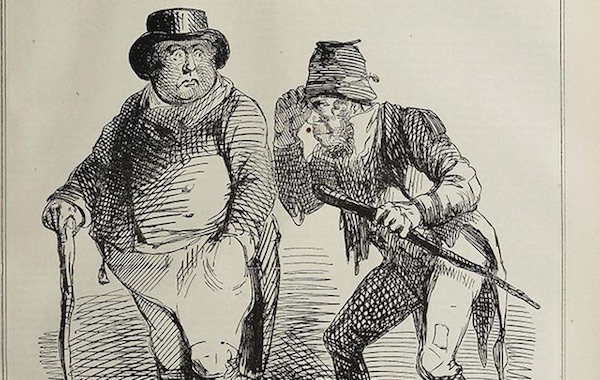
An analysis piece by Limerick academic Richard McMahon which was published in both the Irish and British media this week.
Boris Johnson’s approach to Ireland is part of an ignoble tradition in British politics. At its heart is the false assumption that superiority in resources and military prowess equates to a superiority in intellectual power and moral rectitude. In short, the idea that might is right and that, ultimately, Paddy should know his place. This assumption shaped and even, at times, dominated, policy on Ireland for centuries before independence.
It runs through 19th-century British depictions of the Irish as incapable of self-government, unreliable, lazy and inferior. For Benjamin Disraeli, a British prime minister who shares some personal characteristics with the current incumbent, the Irish were “wild, reckless, indolent, uncertain and superstitious”. Most obviously, this sense of superiority and a refined “moral” stance was clearly manifest in government policy during the Great Famine of 1845-49, which caused the deaths of more than one million people on the island of Ireland.
This consistently damaging strain of thought continued into the 20th century, with British military and economic power often used crudely to address deep-rooted political conflicts in Ireland, which refused, and continue to refuse, to allow for simple solutions. Ireland, the thinking went, should be the handmaiden for glorious Britannia – and this servile position is for Ireland’s own benefit and ultimately serves Irish interests.
Of course, within this particular strain of British political thought, the history of violence and tragedy in Ireland is sometimes portrayed as a product of Irish recalcitrance – a tendency towards disorder and conflict that fails to recognise the beneficence of British policy on the island. Britain, it is often suggested, is a guarantor of Irish stability, addressing and suppressing the inherent conflicts in Irish society, rather than a highly disruptive force that has often recklessly pursued its own interests at a serious cost to its nearest neighbour. This renders the current crisis part of a rather tragic re-emergence of a longstanding disregard for the consequences of British political action on the economic and political stability of Ireland. Sadly, this is because a powerful element within British political life refuses to accept that the blind pursuit of British interests can have deeply damaging consequences for those beyond its borders.
As Johnson now plays with dangerous ideas, promising a “golden age” while already seeking scapegoats for the failure of his vision, the genuine possibility of real and lasting damage to Ireland is compelling. The reintroduction of a hard border on the island is now a possibility. It would become a permanent target for republicans – and the social and economic damage could also serve as a recruiting sergeant for the disaffected to join the ranks of those committed to violent resistance.
More generally, it demonstrates a disregard for the costs inflicted on the basic standards of living of the inhabitants of both islands. That this prospect might be part of an elaborate and rather shallow bluff in the British government’s negotiations with the EU renders the actions of Johnson and his extremist cabinet all the more troubling. If true, Johnson appears to be depending upon reasonable people to block his unreasonable behaviour in the hope of benefiting electorally from their principled actions and, in the process, is risking stability and peace on the island of Ireland.
This reckless pursuit of a Trumpian, Britain-above-all policy, could unleash forces throughout the United Kingdom of Great Britain and Northern Ireland that Johnson may struggle to contain. The promotion of a deeper and greater sense of Irish history in Britain might serve to highlight this folly, although standing against Johnson’s destructive policies will ultimately have to be the work of committed activists and men and women of principle in the political realm.
![[Irish Republican News]](https://republican-news.org/graphics/title_gifs/rn.gif)
![[Irish Republican News]](https://republican-news.org/graphics/title_gifs/harp.gif)

